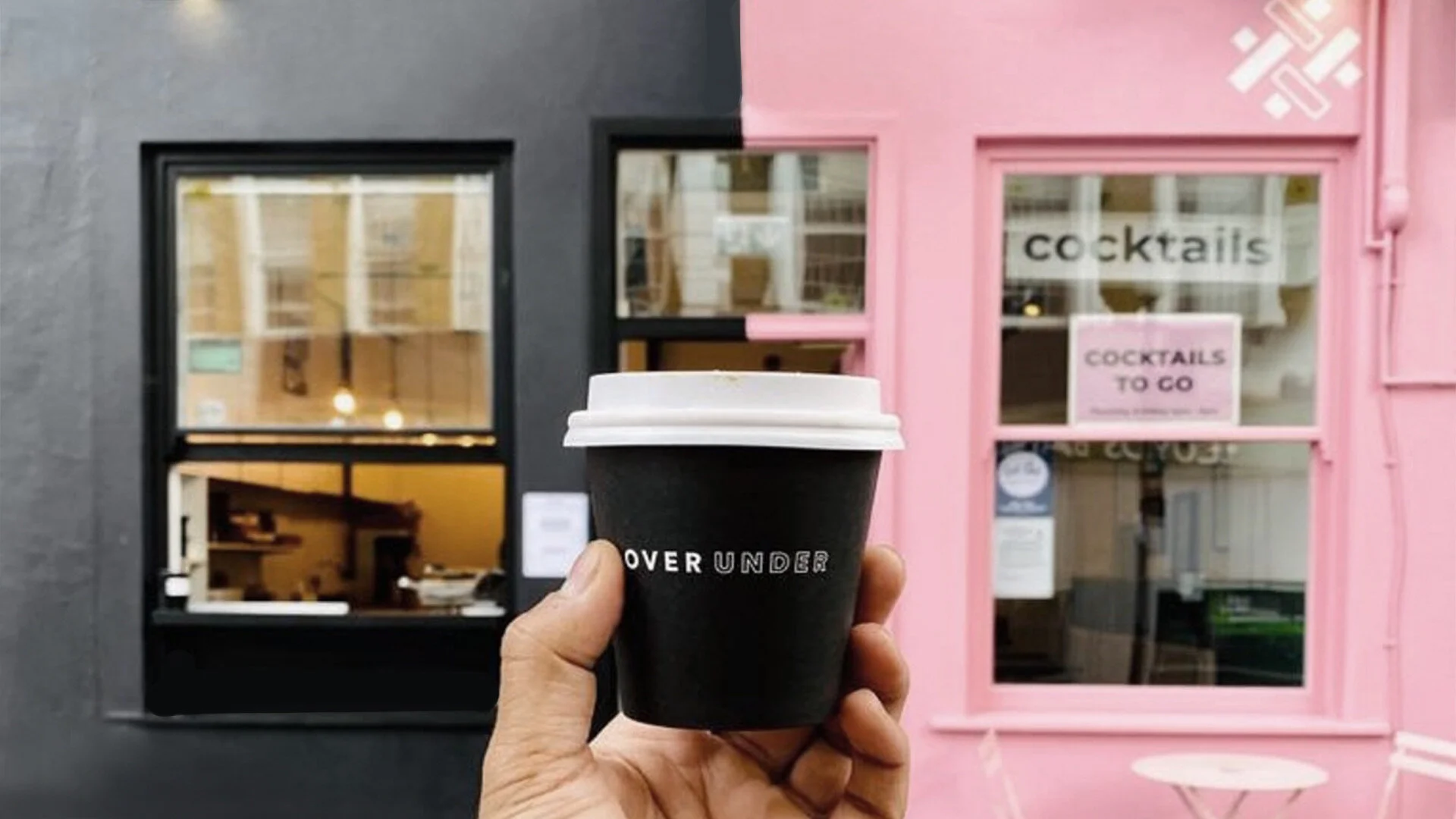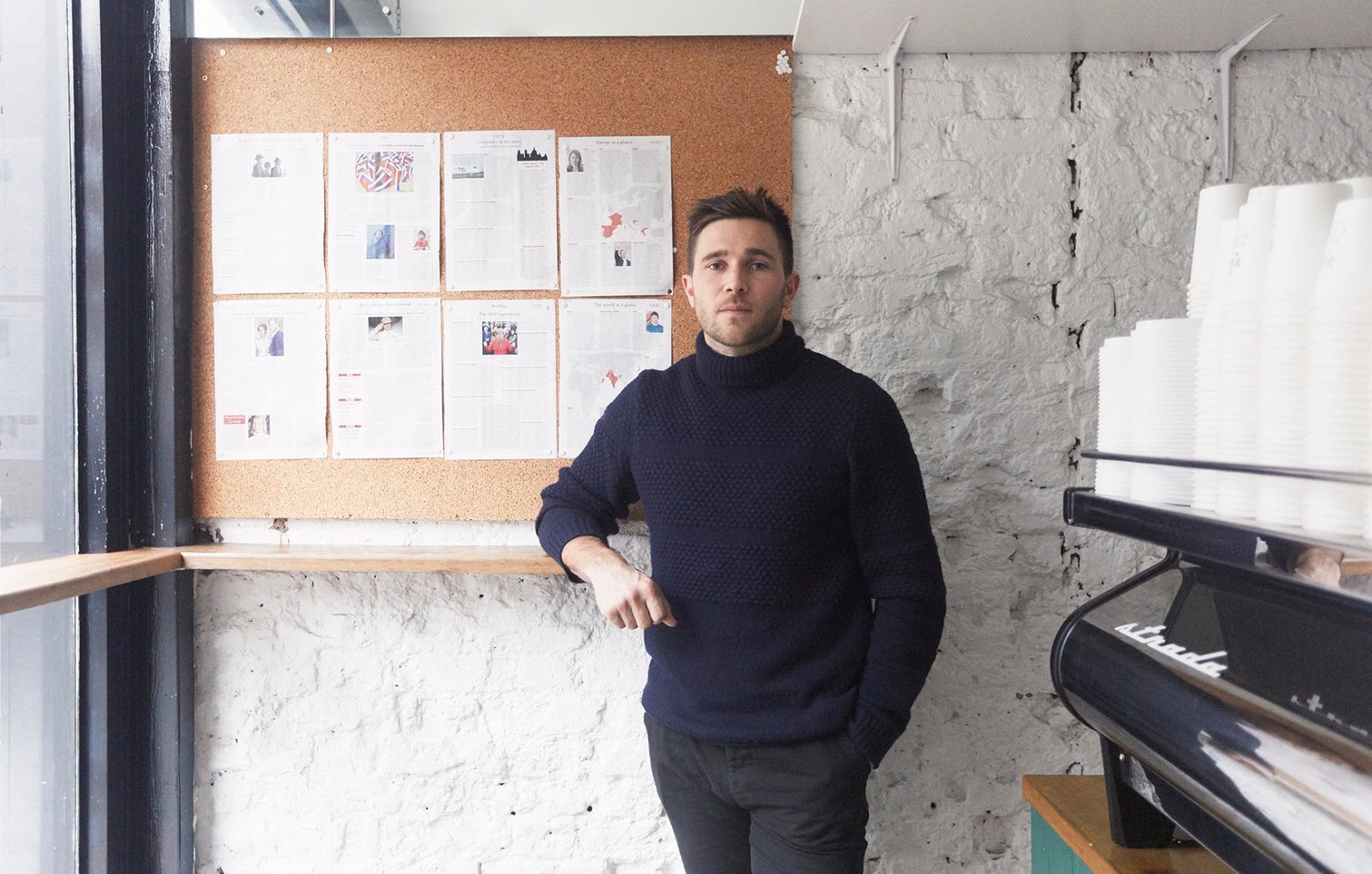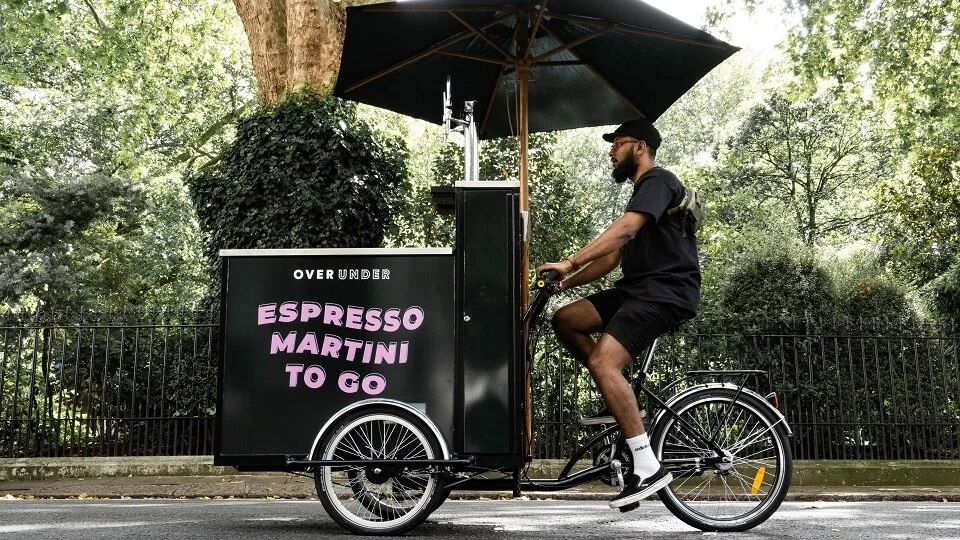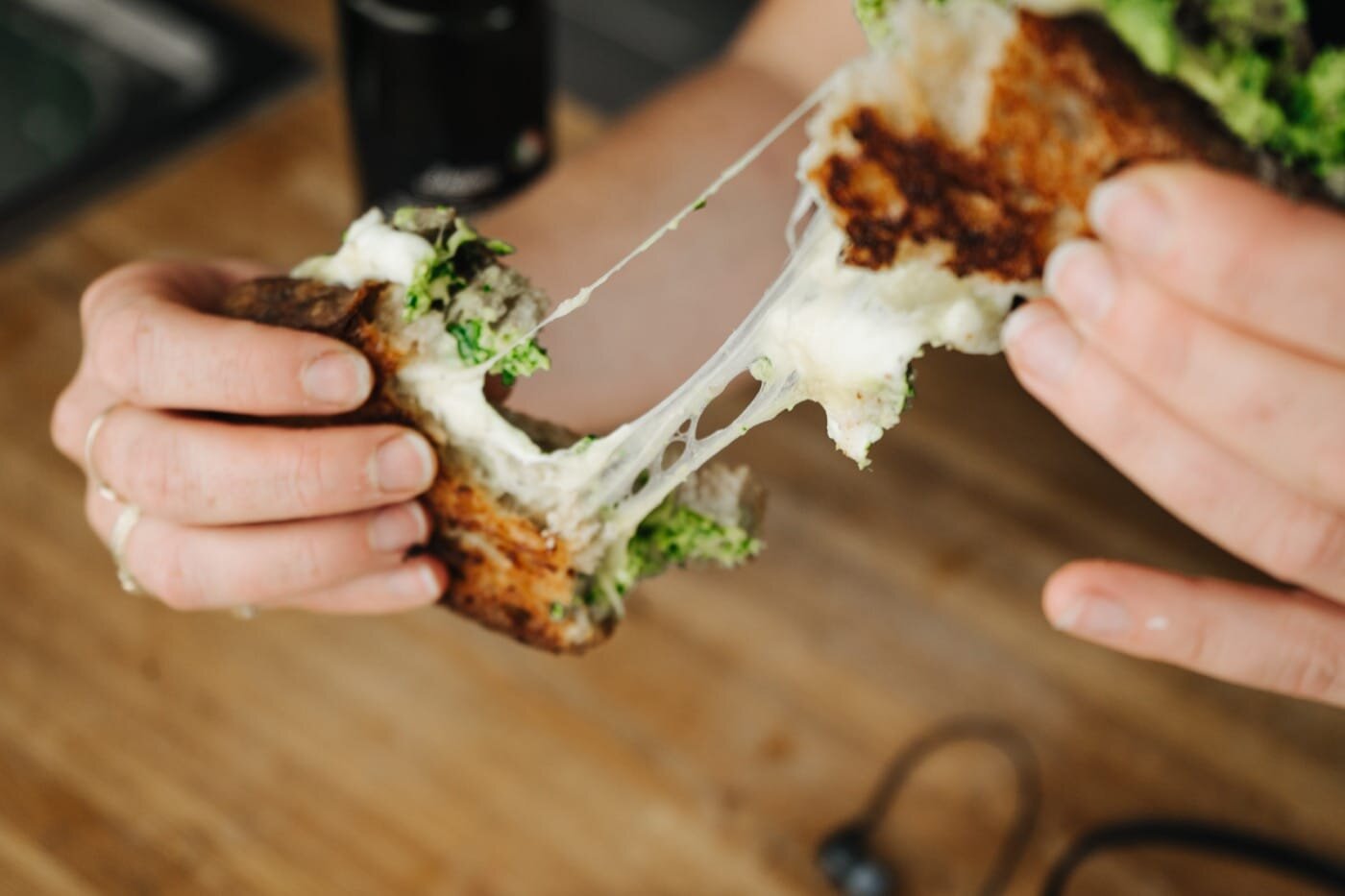Finding a site is half the battle when it comes to the perfect location for your first shop. There is so much to consider in developing your idea that you should have figured out before breaking ground.
We decided to speak to an owner who has set up a string of successful shops in West London, but also a couple of sites that they’d sooner forget. We can learn so much, not only from the wins, but the losses too. We sat down with Ed Barry from Over Under and covered the below subjects in depth:
The research you should do before committing to a site (Do you know what your site’s power capacity is? It might cost you £150,000 if you don’t…)
How to design and budget for a site
The help you can get from the government and other institutions
Your role as a business owner, and how to get the most out of your team
Who are you and how do you make a living?
My name is Ed Barry, I run a small collection of coffee shops and cocktail bars in West London called Over Under.
What made you decide to open your first shop and what was your first step?
I worked in the states for 3 years and fell in love with the hustle and bustle of coffee shops in the city. And I thought we could bring something back to the UK; high volume, small spaces with a simple but good food offering. I came back in May 2016 and we had our first shop open in Earl’s Court months later.
I’d never made a coffee in my life but worked in a load of different places. Coffee shops, restaurants, market stalls. Working in various sites allowed me to work out how I wanted my concept to be and I soon came up with Over Under. I met a load of people in the industry in that time who have been a great help and are still with us today.
You aren’t then a traditional owner with years of experience in hospitality, but you did some hard time. What places did you work in and how long?
I did that for 6/7 months whilst finding a site, whilst finding investment, getting bank loans, government support, but it was a huge learning curve. I worked in a cafe in Hammersmith as a dishwasher, did 4 shifts a week from 6am to 11am and then I’d look at sites for 3 hours, and then I’d work in a bar for the night shift. It was full on, but I learned so much. If I did my time again I would have loved to have managed a place. I never had, so that was a big learning curve when we started out.
You found your dream site. Why did you choose that one?
It was a huge success from day one. I wanted to be in West London as it was devoid of anything independent. It was by a tube stop. I fell in love with it, put a pitch together and went from there.
I looked round a whole load of crap first, hundreds probably.
Has your process changed for finding sites?
We are more refined in our parameters. Before I would see every site sent my way, but now I am more decisive. We tried going out our parameters, but it didn’t work.
That’s true, you had a site once upon a time in Manchester. How did that come about?
We had a guy working for us from Manchester, who bought into the business, and he helped set up our site there. Manchester was a long way away, I had to travel there twice a week, 3 hours there and back. It’s easier to manage places that are nearby, it was taking up too much of our time to manage.
But then, I think we’re much clearer now, I was much more open before and said yes to anything. But now I stick to my guns. Saying yes is good sometimes, but not all the time.
It’s hard for a newcomer to work out fit out costs. How do you go about estimating costs?
That was so hard, you don’t know to be honest. We had an empty shop when we started out. You have no idea what MDF, plywood, electricity outputs cost. No idea.
You have a rough rule of thumb of costing a space by sqft. But it’s so dependent on what you want. We scraped it together for the first one.
Did you do the work yourself?
We had builders from the start, who we have a great relationship with and still use today. I wanted to make sure the place looked good, so we got the help in. Then we could focus on everything else.
There are definitely cases of owners I’ve heard of doing much of the work themselves, but they are probably much better handymen than me.
What do you usually budget for a site?
First one we did on a real shoestring, on like £45,000.
Was it a Food & Beverage shop before?
No, it was an old phone shop. I did a load of the stripping out, because they charge you for that, and I knew that part I could do with a few mates. And then the builders came in, did the plumbing, we did the painting, there was a balance of tasks.
I project managed this one because otherwise they charge you for that. Pulled in a load of favours at the start, and took it from there.
How did you plan the flow of the shop?
I knew people wanted better coffee in the area, but I didn’t think customers would wait 7 minutes for a coffee. So we made the layout so there was a good customer flow.
Look at the pastries as you come in, then go to the till and order your coffee, where you can be upsold the pastries you just saw. Further into the cafe, collect your coffee, then you leave. We try to stick to that model in all our sites.
There were a few design errors here and there, but we’ve ironed them out. But the biggest blocker can be the layout of the shop. If the drainage is one side of the room then you have to work to that. It’s either really expensive to get your coffee to the waste, or you need to move your coffee machine to it, simple as that.
The power requirements was something I learned about the hard way. I thought you’d just plug in and go, but there are limits to it. We don’t have any huge appliances except our coffee machine. Most shops are 100AMP single phase, but our coffee machine takes up 32AMPs. So that’s before any fridges, air conditioners, etc. 30% of your capacity goes on one coffee machine alone!
We upgraded the power in one site and that was a huge expense, and takes a long time. So when we find a shop, if it has 300AMP then it’s great. All of the shops we find now are 3 phase, but they usually come with a premium because someone has invested in that capacity.
It was pretty touch-and-go in our last shop. We called up the power people, and they said it would cost £150,000 to upgrade the power because our nearest access point was 50 yards down the street, and they would need to dig up the road. So make sure you do your research before signing on a site. I’ve got friends in restaurants who can only turn one grill on in certain scenarios. Which you don’t want to be in...
How long does it take to develop a site?
Time wise, it depends on the condition of the site. Some are shitholes and need ages to set up, but then we’ve taken on sites that were a cafe before, and with good builders you can get going pretty quickly.
The thing that can slow you down is not having a good site plan. If you are still making decisions on how to develop your shop, then this will slow you down greatly. If you’re deciding on materials as you go, that can be a week delay each time. So get organised. Especially if you have a rent free period, the clock is ticking. Get the plan firmed up ASAP.
What help did you receive starting out?
When we started I had a friend from the US who bought into the company, he put in about £7k. I had a family and friends round of investment to help me get started, along with my savings I’d made in the US. I took a personal loan from the government which was like £25k. And then there was the SEIS and EIS schemes that were hugely helpful.
There’s lots of grants and supports out there, you just have to do the research to find them. I met people who had done it before and they were really helpful. It’s difficult to navigate that space, you just need to put the time in.
Who have been the most helpful people to speak to?
People who have started their own shop. Anyone who has started a business to be honest, not necessarily in this industry. They have been really helpful.
I really struggled with the accounting side of things to start with. I didn’t know you had to keep VAT receipts, that was a shitshow. I put the admin side of the business on hold at the start as I set up the shop, and I regret that a little…
Doing it again would you have an accountant from the start?
I had an accountant, I was just trying to save money! “I’ll do it, I’ll do it”, but I never got round to it. Whoops.
As the owner, what should your role be in the business?
Focus on what you’re good at. I tried to do a bit of everything as an owner, jack of all trades. But spending 10 hours on a task that an expert can do in moments and well, that’s better value for time and for money.
There is a balance of course, your time is important. If it’s a simple task, I’d do it. But if it’s a specialised task, I’d put the time in to try to understand it, and then pass it on to an expert to do it well.
I surround myself with people who can bring talents to the table that I can’t bring, like creative aspects, and it makes us better as a business.
How do you find good people?
We’ve hired a lot of people who aren’t a good fit, but interview well. And we kept them on for too long, and should have parted ways sooner.
I try to find out what motivates our people to come in every day. So they can come into work and do more of what they want to do, and less of what they don’t want. I go in for very different reasons from someone like a 19 year old barista, a foodie, etc. Try to work out why they are here and grow on that.





